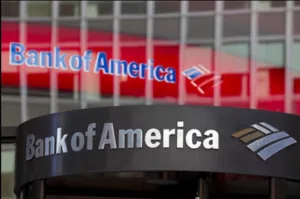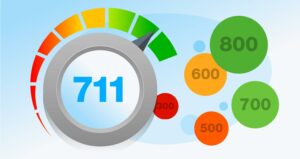
Banking » Chime SpotMe® Overdraft Protection vs. Albert Cash Advance
Chime SpotMe® Overdraft Protection vs. Albert Cash Advance

Our editorial team is independent and objective. To help support our review work, and to continue our ability to provide this content for free to our readers, we receive compensation from the companies that advertise on the CreditMashup site. This site does not include all companies or products available within the market.
We also include links to advertisers’ offers in some of our articles; these “affiliate links” may generate income for our site when you click on them. The compensation we receive from advertisers does not influence the recommendations or advice our editorial team provides in our articles or otherwise impact any of the editorial content.
While we work hard to provide accurate and up to date information that we think you will find relevant, CreditMashup does not and cannot guarantee that any information provided is complete and makes no representations or warranties in connection thereto, nor to the accuracy or applicability thereof. Here is a list of our partners who offer products that we have affiliate links for.
Many banks let you opt-in to overdraft protection where transactions that come up short can be covered from a linked bank account, like a savings account or secondary free checking account, credit card, or line of credit.
Bank customers that opt-in to bank overdraft fees can pay up to $35 per transaction. Banks and credit unions collected more than $7.7 billion in revenue from these fees in 2022, according to data provided by the Consumer Financial Protection Bureau (CFPB).
Fintech companies Chime® and Albert offer checking account customers an alternative to paying overdraft fees, but which one is best.
One major difference is that Chime® SpotMe overdraft protection is a free service but it only allows customers an initial $20 in overdraft protection. It may take several months or years to get approved for a higher amount.
Albert offers a cash advance service called Instant. Through Instant, Albert will spot customers up to $250 instantly for a small fee or free if you can wait 2 to 3 business days.
Chime SpotMe®
Albert Cash Advance
What is an Overdraft
An overdraft occurs when you spend more than you have in your bank account. An overdraft occurs when you write a check, use a debit card or ATM card in a transaction, or make an automatic bill payment for an amount greater than the balance in your checking account or savings account.
What Is Overdraft Protection?
Overdraft protection is an account feature that allows you to pay for purchases without having enough money in your checking account. It’s available with most checking accounts and debit cards.
Why Do You Need Overdraft Protection?
Overdraft protection helps protect against an overdraft by covering any charges made before you have enough money in your checking account to cover them. This means that you won’t incur fees or interest charges on purchases and transactions.
There are ways to avoid overdraft fees that involve closely managing your account but access to overdraft protection can keep you from paying excessive fees.
Ways To Manage Your Checking Account
Managing your checking account is one thing that will keep you on track financially plus keep you out of ChexSystems and EWS. It’s also an area where many people struggle. Here are several ways to avoid mistakes so you can stay on top of your finances.
First, check your bank statement.
If you’re using an ATM card, you might be charged an overdraft fee each time you try to withdraw more than what’s available in your account. This happens because banks charge customers who overdraw their accounts. However, there are ways to avoid being hit with an overdraft fee.
Second, contact your bank.
If you see that you’ve exceeded your balance, contact your bank immediately to see if they can decline the transaction. Declining the transaction can help you avoid an overdraft fee even though you’ll need to follow up with the company or person involved with the transaction.
Third, don’t let your balance get too low.
If you’re not careful, your checking account balance can quickly go down to zero. This means that you won’t be able to make payments on your credit cards or pay bills. Before you reach this point, take steps to avoid it.
Albert Disclaimers
Albert is not a bank. Banking services provided by Sutton Bank, Member FDIC. Albert Savings accounts are held for your benefit at FDIC-insured banks, including Coastal Community Bank, Axos Bank, and Wells Fargo, N.A.
Check Out
LATEST Articles


5 Best Secured Credit Cards For Building Credit

7 Highest Rates For Savings Accounts Online

CIT Bank Review: High-Yield Savings, Money Market & CD Accounts

How to pad your credit report if you have negative items

Can a charge-off account be reported as open

ChexSystems Account Abuse: Everything You Need To Know

How to Dispute a Fraud Notation in ChexSystems

ChexSystems Freeze: 5 Need To Know Facts

How to Structure a Small Business

Does Bank of America Use ChexSystems to open new accounts

What to do when a deleted credit item is re-inserted

Re-aging a credit account on credit reports is illegal

9 Steps To Start a Small Business

What is Revolving Credit?

Online Banks That Don’t Use ChexSystems – Nov. 2025

Best Online Bank Accounts For Free in 2025

ChexSystems Phone Number: What you should know before you call


What to do when you have no credit score and no credit history
Content
Who We Are
Get In Touch
- Email: contact@creditmashup.com
- Phone:
- Hours: Mon-Fri 9:00AM - 5:00PM
© 2026 All Rights Reserved.

